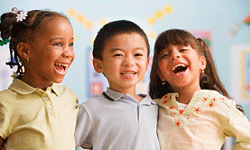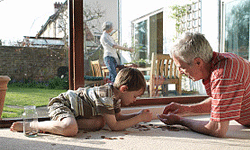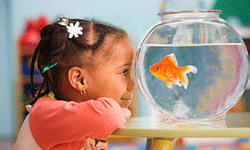In the realm of childhood milestones, starting kindergarten is up there with potty training and first steps. It's where children learn some of the most basic skills they'll use throughout their lives and it marks the start of what will hopefully be an illustrious school career.
That doesn't mean kindergarteners begin school as blank slates, though. There are skills they need to enter the classroom with, ones they've spent five years learning at home with you or with other caretakers -- things like sharing, listening and playing well with others. Social development is a prime marker for kindergarten readiness and greatly increases your child's chances of success.
Advertisement
And then there are the skills that are more academic in nature, and these can sometimes be overlooked by parents. After all, the kid is 5 years old! Certain academic skills, though, are just as important as the social ones. Kindergarten teachers will expect that their new students already know particular things at the start of the year, and if your child doesn't, he or she may end up lagging behind. Not a great way to start that illustrious school career.
So, which skills should your child walk into kindergarten with? There are quite a few, running the gamut from spoken language to color recognition, and they vary in importance. A handful of them, though, are fairly essential.
Here, five of the most important things your child should know on the first day of elementary school. Luckily, these objective, core abilities are pretty easy to assess.
The first one lays the groundwork for what's arguably the most important skill required for success in life ...


